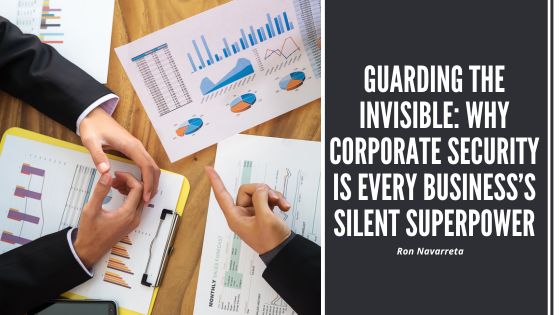When most people think about corporate security, they picture guards at the front door or ID badges that unlock office spaces. But in today’s hyper-connected world, corporate security is far more than a physical checkpoint—it’s the silent superpower that protects businesses from risks both seen and unseen.
Beyond Locks and Cameras
Corporate security has evolved well past the days of locks, alarms, and surveillance cameras. Modern security strategies include everything from cybersecurity protocols to insider threat management and crisis response planning. While physical security still matters, digital threats now dominate the landscape. A hacker in another country can cause just as much damage as someone walking into a lobby uninvited.
The Cost of Complacency
Cybercrime alone is estimated to cost businesses trillions each year. Add in threats like data breaches, corporate espionage, or workplace violence, and the financial and reputational damage can be devastating. For small businesses, one breach can mean closing their doors. For large corporations, it can mean stock crashes, lawsuits, and long-term trust erosion. Security isn’t just a precaution—it’s survival.
People: The Strongest (and Weakest) Link
Technology gets a lot of attention in corporate security, but people are often the greatest vulnerability. Employees who click on phishing links, reuse passwords, or leave sensitive information unattended can open the door to major risks. That’s why training is as important as technology. Regular workshops, simulated phishing tests, and a culture of security awareness turn employees from potential liabilities into first lines of defense.
Blending Technology and Strategy
Modern corporate security is powered by smart technology—biometric access, AI-driven surveillance, encrypted communication, and cloud security systems. But tools alone aren’t enough. Businesses need a holistic security strategy that blends technology with policies, risk assessments, and human oversight.
For example, a company may use advanced firewalls and intrusion detection systems, but if employees aren’t trained to recognize social engineering attacks, hackers can still get in through the “human back door.”
Security as a Brand Asset
Strong corporate security doesn’t just protect—it builds trust. Customers, investors, and partners want to know their data and assets are safe. Companies with robust security protocols can use it as a differentiator, positioning themselves as trustworthy in industries where breaches are common. In some cases, demonstrating strong security practices can even help win new business.
Preparing for the Unexpected
The best security teams operate under a single mantra: it’s not if something goes wrong, but when. Whether it’s a cyberattack, natural disaster, or insider threat, businesses need crisis response plans that minimize damage and restore operations quickly. Preparedness is the difference between temporary disruption and total collapse.
The Silent Superpower
Corporate security rarely makes headlines when it works—but that’s the point. It’s the invisible shield protecting assets, people, and reputations every single day. In a world where threats evolve as quickly as technology, security isn’t just an operational necessity—it’s a strategic advantage.
Behind every thriving business is a robust security system, quietly ensuring that innovation, growth, and trust can flourish without disruption.

